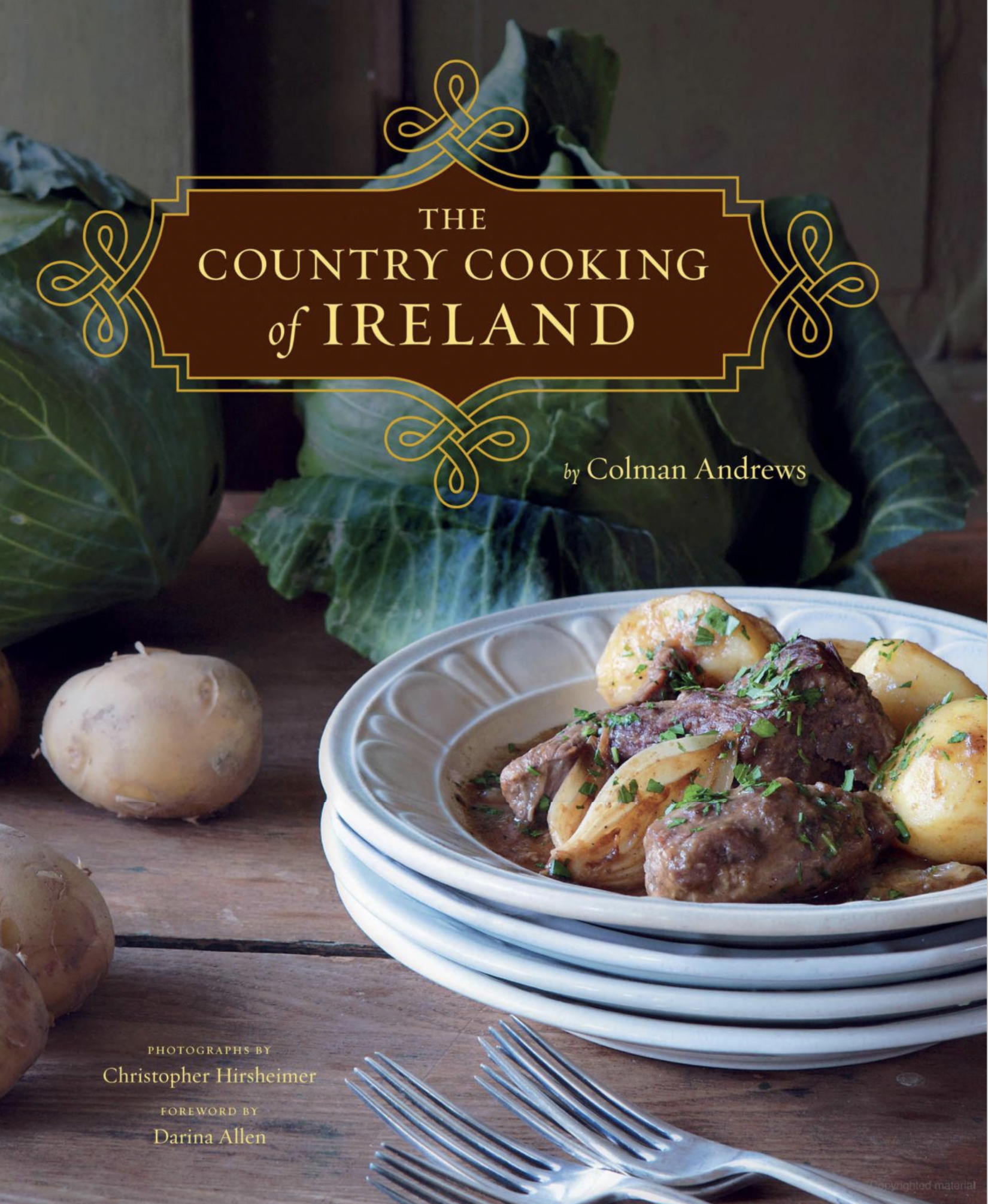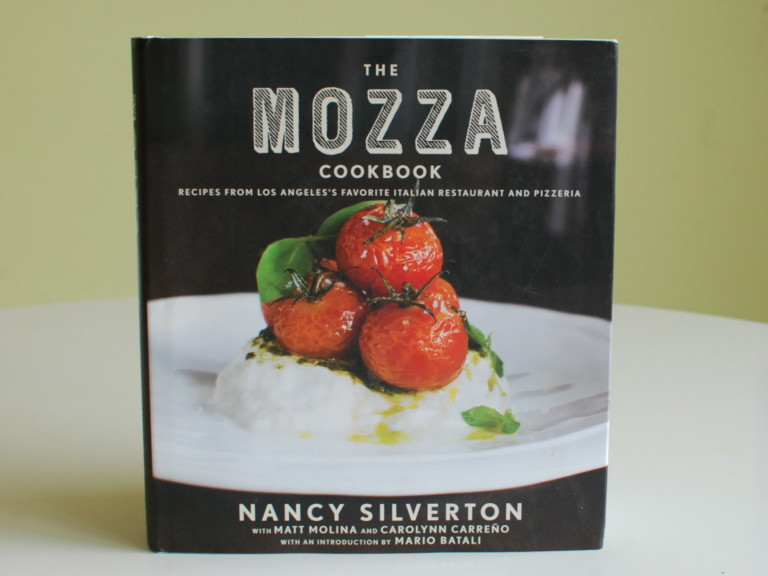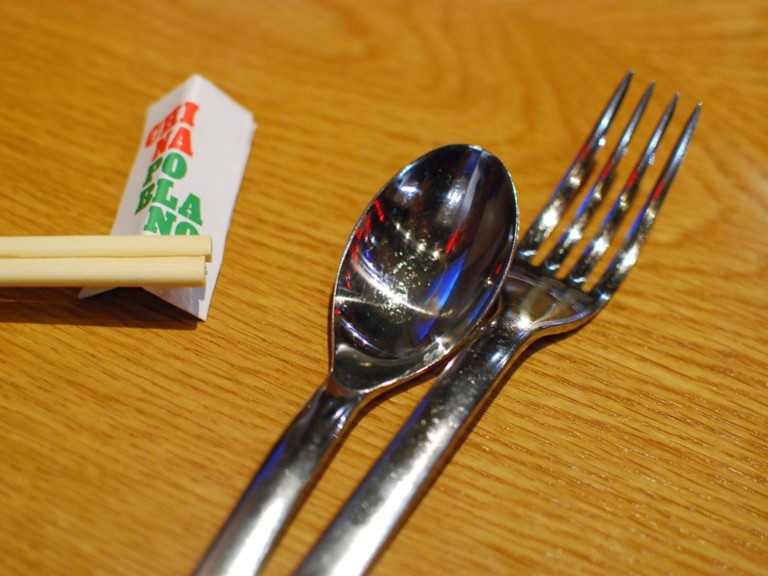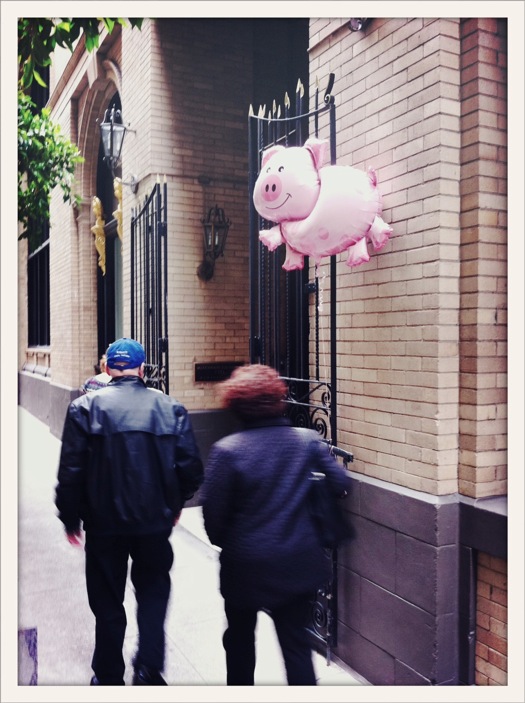People sometimes ask me how I got into the business (if you could call it that) of food writing. I fell in love because of the likes of Anthony Bourdain, Ruth Reichl and Jeffrey Steingarten. I realized that there’s nothing quite like a food memoir and writing to transport me to places that I can only dream about. And yet because of my youth and endless passion for adventure, I know that these experiences might lie somewhere in my near or distant future.
I was reading a short story in The New Yorker a few days ago, a piece by Dinaw Mengestu called “An Honest Exit” that recalled the story of the author’s father and his escape from war-torn Africa in the 70’s. The angle the author takes is one of a private school teacher in New York’s Upper East Side, telling the story to his well-heeled students who listen vociferously to the story. The author’s story of his father’s “exit” becomes the topic of conversation amongst the students, instead of the superficial muck commonly affiliated with the “Gossip Girl” set. The best food writing is the same – stories become so engrossing that you’re virtually sucked in.
I’m thankful for the immediacy of food blogs and new media, where such stories are now a dime a dozen, quick on the draw and straight to the point. The overall effect of this new culture of food writing is that we’re satisfied with “small” plates and “street” food – flavorful shots of food writing that capture our attention in the unending wake of news. It’s not that I don’t enjoy these stories – they have their purpose. But it can get overwhelming, even for the aficionado. There are just too many new restaurants to visit, too many dishes to cook in the kitchen, too many ethnic cuisines to explore. Living in a city as wide and distinctive as Los Angeles, the pace quickly becomes exasperating. My cholesterol levels, arteries, and belly can only take so much.
Reading helps me to live vicariously through the incredible range of these experiences, but I find myself oddly empty in the end. A proliferation of photos and words on the smorgasbord of food blogging only confounds. There was a day when people would read the eloquent pieces in Gourmet or the memoirs of Calvin Trillin, digesting bits in larger, more manageable meals.
The rat race of food writing and reporting needs to stop. I sometimes realize how insignificant so much information which we deem to be of “pressing” news becomes after stepping away from our RSS feed or daily websites for two or three days in a row. It’s as liberating as losing a cell phone. When we think back on the last ten bits of food-related news we read, or perhaps the last 100, consider which of them have any lasting meaning. I remember when Anthony Bourdain (I do lament the falloff in his writing lately) recalled the most significant events of 2009 in an op-ed piece in the New York Times, stating that Jonathan Gold winning a Pulitzer Prize was big news. I agree. And even then, I remember asking my fellow servers at a recent pop-up restaurant about that news, only to be greeted by, “What’s a Pulitzer?” Their ignorance of both the writer and prize reveals to me that even what we foodies consider to be significant loses luster in this wide world.
What to do when all the noise becomes enveloping? Go for quality. Just like fashion, when the trends change quicker than the tides, it’s always helpful to reach for what is timeless. I’ve seen the benefit of paying a little bit more, or searching a little bit harder, for that skinny tie or well-fitted suit. In the same way, good quality food writing is so much more fulfilling. And perhaps more than fashion, food writing has the incredible ability to convey meaning and purpose to things that we didn’t notice otherwise. I was thumbing through Colman Andrews’ excellent cookbook, The Country Cooking of Ireland. I wouldn’t say that I have a terrible passion for Ireland but that changed when I read Andrews’ description of what most would consider a humble cuisine. The vivid photography, whose color palette seemed to stretch various formats and media, showed an incredible display of the dishes, but the writing is what transported me to the Irish countryside. I felt compelled not only to learn more about the cuisine and culture, but about the history of Irish people, and how the cuisine reflects its cultural history.
Going back to Jonathan Gold’s prize – I believe he won because his writing doesn’t just jazz like a saxophone going off or a free-style rapper hitting his phrases. He didn’t get brownie points for being the first one with the review. He received the most prestigious prize in journalism because his reviews do more than just about talk about food – they bring to life a culture, a community, a family, or a way of life.
Fine, you might say. All these highfalutin aspirations seem so ambitious. Perhaps they’re a bit too precious. I’ve been told to get off my high horse on more than a few occasions. It can be possible to take food too seriously, but when food writing transcends its superficial purpose of entertaining our appetites, when the writing takes on life, then we get to the marrow. I don’t know about you, but I love bone marrow more than almost anything.









Blog Comments
mattatouille
August 27, 2010 at 1:52 AM
Eastside Food Bites, thanks for your comment. I know that this argument isn’t a new one by any means. In fact, it’s something that I’ve revisited many ties. It’s just that it seems that it’s becoming easier to become inundated with all the media sources we have these days: kindles, blackberries, iphones, ipod touches, netbooks, laptops, office computers, etc, and heck TV, newspapers, magazines, and (finally) books. There comes a point when you realize that what really nourishes is you is worth pursuing. Sort of like wine – I feel like life is too short to drink bad wine. Sure, wine is wine and it’s all just grapejuice, but if you’re going to take the time to drink it, why not something compelling? I guess that was the thrust I was going for.
eastside food bites
August 26, 2010 at 11:17 AM
I appreciate what you’re saying, and I’m all for quality writing, but I think this issue has been argued since the dawn of modern publishing. Elevated writing (on any subject) is rare, which is why the Pulitzer Prize exists in the first place. Excellence isn’t common, and internet writing just kind of mirrors that fact.
I subscribe to a lot of different food blogs. Some I like and some I absolutely admire, but they all have value for me, even if it’s just for their ogle-worthy photos. I totally accept and appreciate that some people blog not to elevate the art of food writing but because they just really love it. Either way, I say more power to them, knowing that the crème usually rises to the top and that the fleeting is, well, fleeting.
mattatouille
August 25, 2010 at 3:29 PM
Josh, I think the blog/twitter culture has definitely changed the game, but it’s also caused us to look to things that are fleeting instead of what’s more permanent. I didn’t mean to equate that something longer was better, just as a poem could be as powerful as a 19th century Russian author.
Joshua Lurie
August 25, 2010 at 2:11 PM
Engrossing food writing can be 200 words or 12,000. There’s a place for both lengths. And of course “quality” is totally subjective. I may love a story (or dish) that you think is awful.
Matt, I agree with your point that the emphasis on being the first person to post about a restaurant has gotten to be too extreme. With reviews, it’s not very important, and even with restaurant news, it’s not all that important, and here’s why. Google (and other search engines) are the great equalizer. Say you’re the first person to review a restaurant, and you have a minuscule audience? Unless a larger publication or website credits your “discovery,” very few people will even notice your contribution, which will appear down the line in search results. To give your writing the best chance to succeed and have staying power, write as well as possible, which doesn’t always jibe with speed. Restaurant news is even more fleeting. Who breaks the news is generally forgotten pretty quickly.
mattatouille
August 25, 2010 at 10:08 AM
esther, i should have elaborated on the task of attracting readership, which does want a mix of articles rather than encyclopedic knowledge. While I agree, I think in the long run what gives permanence to our writing is striving toward the other end. Even when I look back on my own blog, I can easily pick out which stories are still relevant, and which ones are outmoded within a few weeks, or few days.
mattatouille
August 25, 2010 at 10:05 AM
HC, I’m not saying there isn’t a purpose to those stories, it’s just that sometimes we get obsessed with them, with getting our story out there faster than anyone, or being the first one to provide insight. I just wonder if we’re also seeking out deeper, more compelling writing.
e*starLA
August 25, 2010 at 9:11 AM
I see your case. And also see H.C.’s point as far as the purposes of the quick draw posts. In the end I think we all attract our own readers for individual and a combination of reasons as we gravitate towards certain “writing” styles (and away from others) when we choose which material to consume.
H.C.
August 25, 2010 at 8:32 AM
I definitely agreed on quality vs. quantity in terms of reading blogs (and I do mean reading, not just skimming through the text and oggle at the photographs,) but those quick “slam, bam, thank you ma’am” stories and blogposts have their purpose too and attract their share of readers. Sometimes I read – or skim – for a quick research of what to try before going to a certain place, and sometimes I read to be, as you say, transported.
And oh yeah, thanks for showing me how “highfalutin” is spelled too 😉